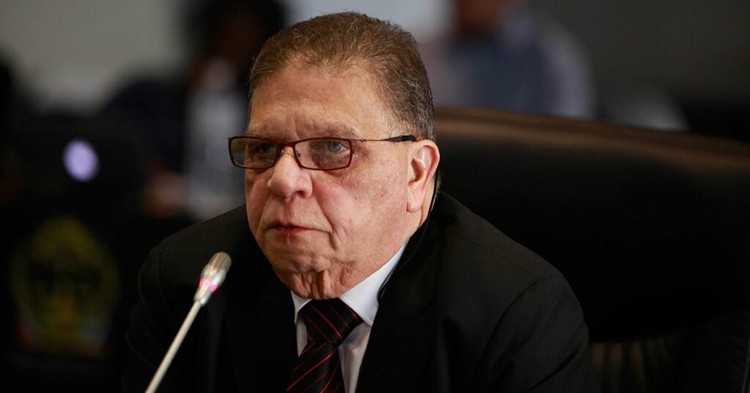
18 July 2025
Western Cape High Court Judge Mushtak Parker has been found guilty by a Judicial Conduct Tribunal. Photo: Oupa Nkosi for Judges Matter
A Judicial Conduct Tribunal has found Western Cape High Court Judge Mushtak Parker guilty of gross misconduct and dishonesty.
Parker had claimed he was physically attacked by John Hlophe, the now-impeached Judge President, in 2019, but later recanted the allegation.
He also did not disclose, when accepting his appointment as judge, that the law firm of which he was the managing partner had a trust fund deficit of millions of rand. This also constituted gross misconduct, the Tribunal said.
The Tribunal, headed by retired Gauteng High Court Judge President Bernard Ngoepe, ruled that “individually and cumulatively”, the findings against Parker had brought the judiciary into disrepute.
Earlier this year, several Western Cape judges testified before the Tribunal that Parker had told them he had been assaulted by Hlophe in February 2019. He had claimed Hlophe pushed him violently against a bookcase, jamming his back into a key, which broke. He had told his colleagues that he had fallen to the ground, injuring his back.
He had alleged that Hlophe was angered by a claim by his (now ex-wife) Judge Gayaat Salie that Parker had sexually harassed her by tugging at her robe.
Judge Derek Wille even assisted Parker in writing an affidavit detailing what happened. But Parker later recanted his version and withdrew a complaint he had lodged against Hlophe, saying he had “misconstrued the events” of the day.
Ten Western Cape High Court judges laid the complaint against him with the Judicial Service Commission (JSC). A Judicial Conduct Committee then referred the matter to the Tribunal for further investigation.
Judge Ngoepe, writing for the Tribunal, said Parker had given “diametrically opposed versions” of the alleged assault, including in the affidavit that he made to Wille.
“If indeed there was no assault, there is evidence from multiple sources that he misled a number of judges into believing that there was an assault. If, on the other hand, there was an assault, it was grossly dishonourable for Judge Parker to now support Dr Hlophe in denying it. One of them had to be a lie.”
“This leads to the inevitable conclusion that he failed to uphold the integrity of the judiciary and that he failed to act honourably in the discharge of his duties.”
The Tribunal noted that Parker’s initial allegation of the assault was one of several matters which Deputy Judge President Patricia Goliath had raised in a complaint to the JSC against Dr Hlophe in January 2020.
Hlophe, in his response to the JSC, denied the assault. Because Parker had backtracked, Hlophe accused Goliath of making the allegation of assault “recklessly, maliciously and in bad faith, relying on reckless rumour and gossip”.
The second complaint against Parker, that he was dishonest about his law firm, was laid by the Cape Bar Council. It was largely based on court papers in a strike-off application by the Legal Practice Council (LPC) involving Parker’s former law firm, Parker and Khan Inc.
Evidence before the Tribunal was that the firm had a trust deficit of between R4.7-million and R7-million, but this had never been reported to the LPC. There was evidence that Parker himself was well aware of it.
When he applied for a permanent appointment as a judge in 2017, he did not disclose these matters in his questionnaire or during his interview.
The Tribunal ruled that from the evidence before it, Parker was aware of the trust deficit and he participated in the misappropriation of trust monies.
“It was clear from the papers filed (in the strike off application) by the LPC that neither Parker nor any of the partners made an effort to report this shortfall to the Cape Law Society. Instead the Cape Law society was alerted by an anonymous tip off,” Ngoepe said.
“The trust deficit in his firm was at that time [when he applied for judicial appointment], a live financial circumstance that he should have disclosed. “
During the Tribunal’s proceedings, Parker made no formal submissions and his advocate, William King, said that his instructions were not to raise factual disputes and that his client would not testify.
He did not question any of the witnesses.
Ngeope said this meant the complaints “were not contested”.
In argument, King suggested that Parker would raise mitigating facts before the JSC should the Tribunal find him guilty.
The JSC will have to make a final decision whether to confirm or reject the Tribunal’s findings. If they confirm it, they will have to decide on a sanction, which might include impeachment.